IACOP-ADHI' 24: Advanced Displays and Human-computer Interaction
Advanced displays promoted the development of human-computer Interactions, including augmented reality (AR), virtual reality (VR), AR-HUD, among others. Spatial computer products seamlessly blend digital content with the physical world and allow users to interact with digital content in a way that feels like it is physically present in their space, relying on ultra-high-resolution display system and revolutionary human-computer Interactions. These groundbreaking innovations urge the advance display technologies and revolutionary human-computer interface controlled by the most natural and intuitive inputs possible — a user' s eyes gaze or electroencephalogram (EEG). Therefore, this session calls for the investigations on advanced Displays and vision-related human-computer interaction, and those addressing the AR/VR headset, AR HUD, Eye-tracking, and SSVEP brain-computer interfaces (BCI) are highly encouraged.
IACOP-ADHI' 24 Topics of interest include, but are not limited to the following
- Micro-LED and Micro-OLED displays
- AR/VR headset
- Eye-tracking
- LCDs with Mini-LED backlight
- Smart cockpit for EV
- AR heads-up display (AR-HUD)
- SSVEP brain-computer interfaces (BCI)
IACOP-ADHI' 24 Session Chair
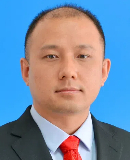
Weijie Guo
School of Electronic Science and Technology, Xiamen University
Biography: Dr. Weijie Guo completed his doctorate in Physical Electronics at Xiamen University in 2019. He joined the Department of Electronic Science at Xiamen University in 2020, served as Deputy Director of Fujian Provincal LED Lighting and Display Industry Technology Development Center. His research interests include mini-LED displays and micro-LED displays. He won the Committee of 100 scholars in 2019. He has carried out effective cooperation with AUO, Tianma, Changelight, LatticePower, Bridgelux Optoelectronics. He has won 5 provincial or ministerial science and technology awards.
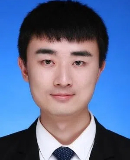
School of Information Engineering, Nanchang University, China
Biography: Wenbo Wan is the deputy director of the Imaging and Visual Representation Laboratory of Nanchang University. He received his Ph.D. degree in biomedical engineering from Tianjin University in 2019, and is mainly engaged in the research of intelligent optoelectronic imaging systems, multi-dimensional signal a priori representations, and intelligent reconstruction algorithms of images, with his research interests related to Lens-free coded computational imaging, scattering medium computational imaging, digital holographic imaging, near-eye holographic display, and biomedical multimodal imaging.
IACOP-ADHI' 24 Invited Speaker
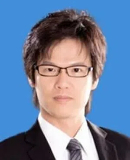
Boru Yang
School of Electronics and Information Technology, Sun Yat-sen University, China
Biography: Boru (Paul) Yang received the B.S. degree from National Chiao Tung University, Taiwan, China, in 2002, the M.Sc degree from National Tsing Hua University, Taiwan, in 2004, and the Ph.D degree from National Chiao Tung University, Taiwan, in 2007.,He worked with SiPix (later on merged with E-ink), Billerica, MA, USA, from 2009 to 2012, participated in the production of fast-switching, high performance, and color e-papers. Since December 2012, he has been with Sun Yat-sen University, Guangzhou, China, researching and was promoted to a Full Professor in 2018.

Shaoyun Yin
Chongqing Institutes of Green and Intelligent Technology, Chinese Academy of Sciences, China
Biography: Shaoyun Yin received the degree from the Microelectronics Department, Lanzhou University, in 2004, and the Ph.D. degree in optical engineering from the Institute of Optics and Electronics, Chinese Academy of Sciences, in 2009. He is currently a Professor and the Director of the Integrated Optoelectronic Technology Research Center, Chongqing Institute of Green and Intelligent Technology, Chinese Academy of Sciences. His main research interests include micro-nano optics theory, optical instruments and equipment, artificial intelligence, and control systems.

Tao Tao
School of Electronic Science and Engineering, Nanjing University, China
Biography: Tao Tao is an associate professor and doctoral supervisor at the School of Electronic Science and Engineering, Nanjing University. He has been conducting research on group III nitride materials and optoelectronic devices in Jiangsu Key Laboratory of Optoelectronic Information Functional Materials and State Joint Local Engineering Center for Semiconductor Energy-saving Devices and Materials.
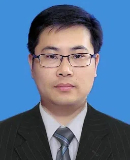
Zihui Zhang
School of Integrated Circuits, Guangdong University of Technology, China
Biography: Zi-Hui Zhang received the B.S. degree from Shandong University and the Ph.D. degree from Nanyang Technological University. He is currently a Professor with the School of Integrated Circuits, Guangdong University of Technology, China. His research interests include wide-band semiconductor devices, semiconductor device physics, chip design and simulation technology and industrialization promotion.
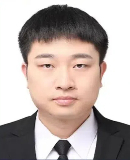
Greater Bay Area Institute for Innovation, Hunan University, China
Biography: Song Qiang is a researcher at the Greater Bay Area Institute for Innovation, Hunan University, he has long been working on the development of optical-mechanical systems, the reverse design and fabrication of micro- and nano-photonic devices, and the development of automated laser direct-writing devices.

Zong Qin
School of Electronics and Information Technology, Sun Yat-sen University, China
Biography: Dr. Zong Qin received his bachelor’s degrees in Optical Engineering and Computer Science from Huazhong University of Science and Technology (Wuhan, China) in 2008. He received his Ph.D. degree in Mechanical Engineering there in 2013. After serving as a Postdoctoral Fellow...more...

Xinqin Liao
School of Electronic Science and Engineering, Xiamen University, China
Biography: Xinqin Liao received the B.Eng. degree from Fuzhou University in 2012, and the Ph.D. degree from the University of Science and Technology Beijing in 2017. He is currently an associate professor at Xiamen University, China. His research interests focus on material synthesis and characterization, and flexible electronics.

Shufeng Lin
School of Physics and Optoelectronic Engineering, Beijing University of Technology, China
Biography: Shufeng Lin is an associate professor at School of Physics and Optoelectronic Engineering, Beijing University of Technology, Beijing, China. He received his Ph.D Degree in 2018 from Department of Electronic Engineering, Kwangwoon University, Seoul, Korea. During 2018 to 2021, he worked as a Postdoctoral Research Fellow at the School of Instrumentation and Optoelectronic Engineering, Beihang University, Beijing, China. His present studies are mainly related in optical information processing, especially in holography, 3D display, holographic imaging and THz light filed manipulation.

Zi Wang
School of Instrumentation and Opto-Electronics Engineering, Hefei University of Technology, China
Speech title: Study of human visual characteristics in holographic displays and 3D displays
Biography: Zi Wang received the B.S. and Ph.D. degrees from the Department of Optics and Optical Engineering, University of Science and Technology of China, Hefei, China, in 2012 and 2017, respectively. He was an Associate Researcher with the Academy of Opto-Electric Technology, Hefei University of Technology, Hefei. He has authored or coauthored more than 30 SCI academic papers. His research interests include 3D display and holographic display.
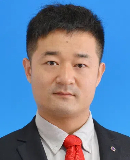
Yang Mei
Department of Microelectronics and Integrated Circuit, Xiamen University, China
Biography: Yang Mei got his Ph.D. in 2020 from the School of Electronics Science and Technology, Xiamen University. From 2017 to 2019, he went to the University of Tokyo for joint training. In September 2020, he joined the Department of Microelectronics and Integrated Circuits, Xiamen University, as an assistant professor. He has been engaged...more...

Zaifa Du
Weifang University, China
Speech title: Research on Efficiency Improvement of Micro-LED
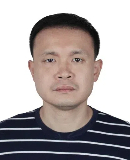
Yue Lin
School of Electronic Science and Engineering, Xiamen University, China
Biography: Yue Lin is currently an Associate Professor with the School of Electronic Science and Engineering, Xiamen University. He received the Ph.D. degree in wireless physics from Xiamen University in 2012. His research interests include Micro-LED display technology, GaN and AlGaN based materials and devices, Visible lighting communication, etc.